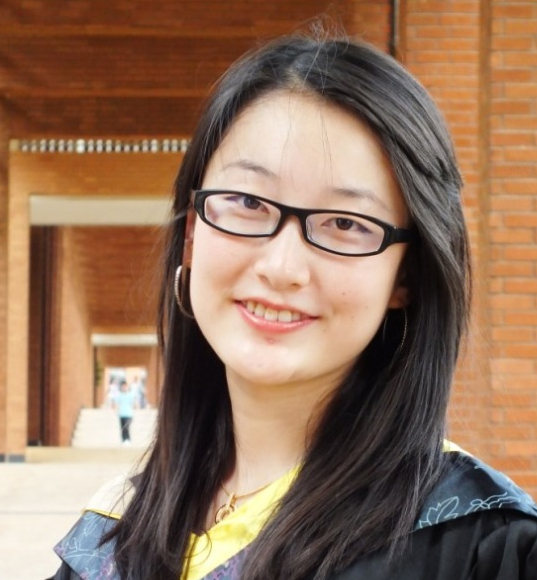
By Paul Denham
Mengbi Li is recognised by the Chinese Government by being awarded the 2015 Chinese Government Award for Outstanding Students Abroad.
This award recognises Chinese PhD students who have sourced alternative funding to Chinese Government funding and study at universities outside of China. Approximately 500 students from various disciplines are selected to receive this honour each year.

Above: PhD student, Mengbi Li, winner of the 2015 Chinese Government Award for Outstanding Students Abroad.
Mengbi’s thesis concentrates on traditional Chinese architecture and how it can help inform 21st century architects and assist them to build sustainable urban cities. One of Mengbi’s PhD supervisors, Dr. Scott Hawken, a lecturer in UNSW Built Environment’s Urban Development and Design program, explains, “Mengbi is a hard-working student studying a fascinating and complex subject. Her thesis investigates ways in which today’s architects can learn from traditional Chinese architecture to help them generate a more sustainable urban culture. To do this she has conducted extensive field work in remote Chinese villages as well as investigated how modern architects around the world have interpreted (and misinterpreted) vernacular architecture. The current urban upheaval in China is unprecedented and devastating, with much irreplaceable heritage being rapidly lost. This makes Mengbi’s thesis a valuable contribution to architectural theory, heritage studies and sustainable architecture.”
Mengbi is also supervised by Professor Xing Ruan, Director of UNSW’s Architecture program and Associate Professor in Architecture Studies, Harry Margalit.
UNSW Built Environment spoke to Mengbi about her reason for choosing UNSW.
“I decided to come to UNSW for a number of reasons and I am proud to say that it is one of the best decisions in my life to choose to study at UNSW. First, I have been fortunate enough to have Professor Xing Ruan, Dr Scott Hawken and Associate Professor, Harry Margalit as my PhD supervisors. All of them have inspired me, provided me with wonderful academic support, and guided me through this exciting yet challenging journey. They are always willing to share their deep knowledge and insightful thoughts about architecture. Second, UNSW, as a world class university, has one of the best architecture disciplines in the world. Studying in such a great university will definitely give me an edge to realise my ambition and dream in the future. Third, the academic atmosphere here is truly free and encouraging. Colleagues around me are passionate about research, teaching and engaging with people. I am always feeling stimulated intellectually. In addition, I like the collegial environment here at UNSW, where faculties, professional staff and PhD peers are so friendly and easy-going that you will always feel a sense of belonging.”
Watch Mengbi's interview at the 2014 Place & Placelessness symposium.
